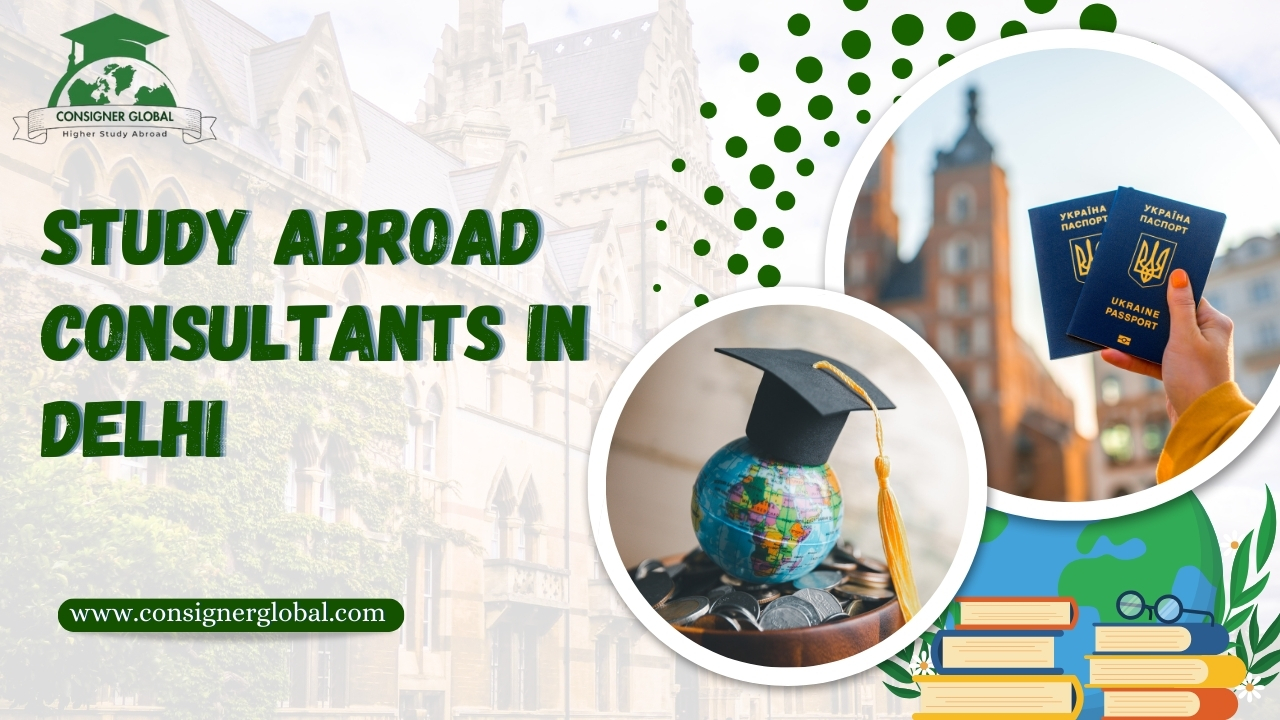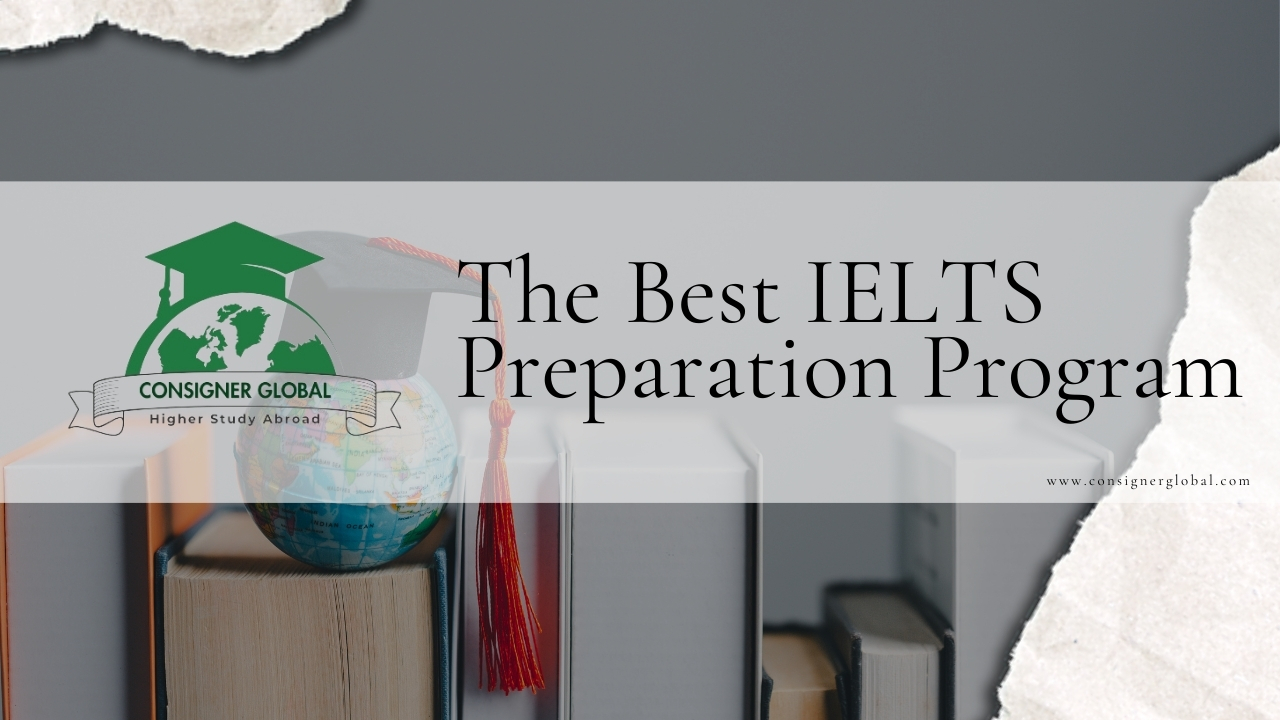Unlock Your Global Education Journey with the Best Study Abroad Consultants in Delhi
Unlock your global education dreams with the best study abroad consultants in Delhi. Get expert guidance for universities, visas, scholarships, and more!
Read More
Studying abroad is a life-changing experience that allows students to explore new cultures, meet people from around the world, and gain a broader perspective. Choosing the best location for studying abroad plays a crucial role in enhancing this experience, as it can provide unique opportunities for cultural immersion and personal growth. One of the most valuable skills students can acquire while studying abroad is learning a new language. Mastering the local language opens doors to personal growth, academic success, and professional opportunities. This blog delves into the many benefits of learning a new language while studying abroad and explains why this skill is a game-changer for students.
Living in a foreign country means interacting with locals daily, whether it’s buying groceries, asking for directions, or engaging in casual conversations. Learning the local language simplifies these interactions and boosts confidence in navigating day-to-day life.
For example, students in Spain who learn Spanish can enjoy deeper conversations with locals, understand cultural nuances, and avoid misunderstandings. Being able to communicate in the local language makes living abroad less intimidating and far more rewarding.
Language is an integral part of any culture. By learning the language of the host country, students gain a deeper understanding of its traditions, values, and way of life. It bridges the gap between being an outsider and feeling like a part of the community.
Imagine studying in Japan and learning Japanese. Students not only understand the language but also gain insights into the rich history, etiquette, and customs that shape Japanese culture. This immersion leads to a more authentic experience.
Many universities offer classes in the local language, and being proficient allows students to take advantage of these opportunities. Accessing academic materials, lectures, and discussions in the local language enhances understanding and fosters academic growth.
Moreover, language skills make group projects with local students easier, encouraging collaboration and mutual respect. For instance, a student studying in Germany who learns German can seamlessly engage with peers and professors, excelling in their academic endeavors.
Fluency in a second language is a valuable asset in today’s global job market. Employers often seek candidates who can communicate with international clients or work in diverse teams. Learning a new language while studying abroad gives students an edge over others.
For example, proficiency in Mandarin can be a significant advantage for students studying in China, as it is one of the most widely spoken languages in the business world. Language skills signal adaptability, cultural awareness, and a willingness to step out of one’s comfort zone—traits highly valued by employers.
Learning a new language is challenging, but the journey builds resilience and confidence. Overcoming language barriers fosters problem-solving skills and adaptability. As students practice speaking and make mistakes, they learn to embrace imperfection and persevere.
These experiences contribute to personal growth. A student who successfully navigates life in a foreign country with a new language often returns home more self-assured, independent, and ready to tackle future challenges.
Knowing the local language helps students form meaningful relationships with people from the host country. Whether it’s making friends, bonding with a host family, or networking with professionals, language proficiency strengthens connections.
For example, a student studying in France who learns French can establish friendships with locals and maintain these relationships long after returning home. These connections often lead to opportunities for cultural exchange, travel, or even career collaborations.
Learning a new language enhances brain function. Studies have shown that bilingual individuals have better memory, improved multitasking abilities, and greater problem-solving skills. These cognitive advantages benefit students academically and in everyday life.
While studying abroad, the constant practice of switching between languages sharpens the mind, making students more creative and adaptable thinkers.
Learning the local language makes exploring the host country and its surroundings more enjoyable. Students can navigate public transportation, understand historical sites, and interact with locals during their travels.
For example, a student studying in Italy who learns Italian can appreciate art museums, historical landmarks, and local festivals on a deeper level. Understanding the language adds richness to the travel experience, making it more memorable.
Interestingly, learning a second language often improves understanding of one’s native language. Students become more aware of grammar, sentence structure, and vocabulary as they compare and contrast the two languages.
This newfound awareness enhances communication skills in their mother tongue, benefiting both personal and professional interactions.
Learning a new language opens doors to different worldviews. Language shapes how people think, express emotions, and interpret experiences. By studying a new language, students gain insights into perspectives that may be vastly different from their own.
For instance, learning Arabic while studying in the Middle East introduces students to unique phrases, idioms, and cultural expressions, fostering a deeper appreciation of the region’s diversity.
Studying abroad often brings together students from various countries. Learning the local language creates a shared ground for communication, enabling friendships with international peers who may also be learning the same language.
These friendships broaden students’ horizons, exposing them to multiple cultures and languages at once. Such connections enrich the overall study abroad experience.
The benefits of learning a new language extend far beyond the study abroad period. Language skills stay with students for a lifetime, enriching personal and professional experiences.
For example, a student who learns Portuguese while studying in Brazil can later use the language to work in international trade or tourism, travel with ease, or even relocate to Portuguese-speaking countries.
Learning a new language while studying abroad is one of the most rewarding investments a student can make. It enhances daily living, fosters cultural immersion, and opens doors to academic and career opportunities. For students preparing for international studies, enrolling in IELTS coaching in Delhi can further improve language proficiency and test performance. Beyond these tangible benefits, language learning builds confidence, sharpens the mind, and creates lifelong connections.
For students planning to study abroad, embracing the challenge of learning a new language can transform the experience into a truly enriching journey. So, step out of your comfort zone, pick up that language book, and immerse yourself fully in the adventure of studying abroad!

2025-01-30
0
Unlock your global education dreams with the best study abroad consultants in Delhi. Get expert guidance for universities, visas, scholarships, and more!
Read More
2025-03-06
0
Explore top destinations for Indian students to study MBBS abroad, offering affordable tuition, global recognition, advanced facilities, and diverse cultural experiences.
Read More
2025-03-06
0
Choose the best study abroad location by considering factors like university rankings, course offerings, living costs, safety, culture, and career opportunities.
Read More
2025-03-06
0
Join Consigner Global for the best IELTS preparation in Delhi. Expert trainers, personalized programs, and proven success to help you achieve your dream band score
Read More